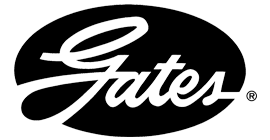
AUTONET TV
Archive for October 2022The Last Gas (Fuel Pump Replacement).Posted October 30, 2022 7:17 AMYou're heading down the road and you notice your vehicle is sputtering, like it's running out of gas. But the gauge show's it's still got a quarter of a tank. So what gives? It could be that your fuel pump is failing, meaning your engine is not getting enough gas to run properly. While fuel pumps are built to last a long time, sometimes they fail. Other symptoms you may have a bad fuel pump include your vehicle stalling and then refusing to start again, the engine overheating or a hum or whirr coming from around the gas tank. Or, your Check Engine light may come on. Most fuel pumps are in the gas tank. They have a small electric motor in them. When you bring your vehicle to our service center, a technician will run tests to confirm the fuel pump is getting power to it but has failed. Some vehicles have an access panel so the fuel pump can be removed and replaced. But in some vehicles that don't have that access panel, the technician has to drain the fuel and take the tank out of the vehicle to be able to replace the fuel pump inside. Some parts such as brackets that attach the pump can be reused when the new fuel pump is installed. Most technicians will recommend replacing the fuel filter at the same time the fuel pump is changed out. If the technician has to remove the fuel tank, they'll also check for rust and corrosion and replace any affected parts. Keep one thing in mind - your vehicle's fuel pump is in the fuel tank because it's kept cool and lubricated by the gasoline in the tank. Try not to let your fuel level go below a half or quarter of a tank to maximize the life of your fuel pump. Also, try to use Top Tier gasoline that has higher standards than some other fuels. Your engine—and fuel pump—will thank you. TJ's Auto Center Inc. Rubber Match (Tire Replacement)Posted October 23, 2022 10:52 AMA set of new tires isn't probably high on anyone's list of exciting purchases. But since your life is literally riding on them, it's probably a good idea to know when it's time for you to buy new ones. If you've been feeling your vehicle slipping more in wet weather or it takes a longer distance to stop, those are a couple of signs you may need new rubber all around. Here's how to make your decision. First thing to do is look at your tires. The surface of the tire that contacts the road is the tread. When that tire was new, the tread was deep (the grooves in the rubber that provide traction). If they're starting to look somewhat smooth, you have a seriously worn tire that definitely needs replacing. Bring your vehicle in for us to look at your tires and we can check your tread with a tread gauge. Also look at the sides of your tires. If they have cuts or cracks in them, or if you see signs of bulges or scrapes made by hitting curbs or potholes, those could be signs of serious damage. Keep an eye on your tire pressure monitors. If you notice one or more of your tires showing frequent pressure changes, that needs to be checked out. One other thing you probably didn't know is that your tires all have birthdays, and they're printed on each sidewall. When you bring your vehicle in for us to inspect your tires, we can tell you how old they are. That's important because rubber deteriorates with age, even if they don’t have that many miles on them. Tire manufacturers recommend replacing tires when they reach a certain age, usually from six to ten years old. Now the question is, which tires should you buy? That's one for your service adviser who can recommend replacements based on your driving style, the model of vehicle you own, where you drive most often, and other factors. Oh, and if you want your new set of tires to last as long as possible, remember to have them rotated regularly, keep the right pressure, and don't drive aggressively. TJ's Auto Center Inc. Full of Hot Air (Air Conditioning)Posted October 16, 2022 7:40 AMIn warm weather, you want to be in a cool vehicle. When we're talking cool, we don't mean stylish or trendy, but cool as in not sweltering inside. And if your vehicle's air conditioner stops working correctly, it seems to always break at the worst time—during a heat wave. Automotive air conditioning problems fail for a number of reasons:
When you bring your vehicle into our service center, we'll run a series of diagnostic tests to figure out what isn't working correctly. The air conditioning system has a lot of parts. There are electrical and mechanical components plus a series of hoses and tubes that all can wear out over time. Any one of these can fail. A lot of drivers think they have a "Freon leak" and believe that if they get their AC system recharged with the refrigerant, everything will be fine. But AC systems are so complex, it usually takes a trained technician to accurately figure out where the problems are. Sometimes the solution is simple. If your blower motor wears out or there's a fuse that has blown, the technician can replace the bad parts and you'll quickly be back to enjoying your rolling refrigerator. But when compressors or condensers go bad, those are much more involved and expensive to fix. For instance, electrical problems can sometimes lead to acid to build up and corrode other parts of your AC system. Sometimes that causes so much damage, your whole air conditioning system has to be replaced. That's why it's always a good idea to have your AC regularly maintained. Our technicians can find a problem early and prevent more expensive repairs down the road. That's really the cool way to go. TJ's Auto Center Inc. Keeping Your Cool (Coolant System)Posted October 9, 2022 8:50 AMNo matter what the weather is like outside, your internal combustion engine expects to keep its cool all the time, even when it's really cold. That's because engines create the power that moves you to your destination by a series of tiny explosions of a fuel and air mixture. In turn, that generates a lot of heat in a small space. Your vehicle has a complete cooling system with a lot of different parts that work together to keep the temperature at a point where the metal engine parts won't heat up enough to warp. Its lifeblood is coolant, a liquid that circulates through the engine (and, in most vehicles, the transmission, too) through a series of hoses and tubes. In order to get rid of the coolant's heat, your vehicle has a part you probably recognize: the radiator. It does what its name proclaims: radiates heat. The radiator has a series of thin metal fins that coolant goes through, and when outside air passes over them, the heat is dissipated from the radiator into the air. The water pump (which is technically a coolant pump) is what propels the coolant where it needs to go. When there's a problem in the coolant system, it may because it's leaking somewhere. A few things to look out for are the temperature gauge heading into the hot, or red, zone, fluid leaks under your vehicle, or the sweet smell of coolant under your vehicle after it's been parked. If your vehicle has any of those signs, bring it in so we can check things out. A technician will inspect the water pump and hoses for any signs of leaks. They'll also look for leaks or holes in the radiator core or cores. One other potential trouble spot is the radiator cap that can sometimes fail to keep the required pressure in the radiator. Once the problems are fixed, they'll add the correct coolant and you'll be on your way. We want you to always keep your cool. TJ's Auto Center Inc.
Go With the Flow (MAF Sensor Replacement)Posted October 2, 2022 9:37 AMA driver brought her vehicle into the shop the other day and told us how she was getting lousy fuel economy and that the engine was running rough. Plus, the Check Engine light was on. Our technician checked the code the engine had generated (why the Check Engine light was on) and found the problem. It was a faulty Mass Air Flow sensor, MAF sensor for short. This MAF sensor is an important part of your vehicle. What it does is calculate the amount of air going into your engine. As you may know, air is taken into your engine where it's mixed with fuel. Then, the spark plugs fire, that explosive fuel/air mixture detonates, and all these sequential explosions together provide the power to get your vehicle moving down the road. It makes sense that if the MAF sensor isn't sending the engine's computers the correct information on the amount of air going in the engine, the fuel/air mixture isn't going to be right. It will either too rich (too much gasoline for the amount of air) or too lean (not enough gasoline for the amount of air). In this driver's case, the MAF sensor was damaged and needed to be replaced. Another thing that may cause the MAF to give an incorrect reading is if its wires are dirty or faulty. So, replacing or cleaning the wires important as well. Other symptoms that your MAF sensor is bad? If your engine hesitates when you step on the gas, it stalls, or your vehicle is jerky when you accelerate. A malfunctioning MAF sensor is not just bad for performance. Driving with your vehicle in that condition can cause more damage to your engine. When you bring your vehicle in for us to check, a technician will thoroughly examine your engine to make sure all issues are taken care of. TJ's Auto Center Inc. | ||
SearchArchiveJune 2010 (71)July 2010 (4) August 2010 (4) September 2010 (4) October 2010 (4) November 2010 (4) December 2010 (4) January 2011 (4) February 2011 (4) March 2011 (4) April 2011 (5) May 2011 (5) June 2011 (4) July 2011 (4) August 2011 (5) September 2011 (4) October 2011 (4) November 2011 (5) December 2011 (4) January 2012 (5) February 2012 (2) March 2012 (5) April 2012 (4) May 2012 (5) June 2012 (4) July 2012 (5) August 2012 (4) September 2012 (4) November 2012 (1) December 2012 (2) March 2013 (1) April 2013 (3) May 2013 (2) October 2013 (5) November 2013 (2) January 2014 (2) February 2014 (3) March 2014 (1) July 2014 (4) August 2014 (7) September 2014 (4) October 2014 (5) November 2014 (4) December 2014 (5) January 2015 (4) February 2015 (4) March 2015 (4) April 2015 (4) May 2015 (3) June 2015 (5) July 2015 (2) September 2015 (2) October 2015 (4) November 2015 (5) December 2015 (2) February 2016 (2) March 2016 (4) April 2016 (4) May 2016 (5) June 2016 (4) July 2016 (5) August 2016 (4) September 2016 (4) October 2016 (5) November 2016 (4) December 2016 (4) January 2017 (5) February 2017 (4) March 2017 (4) April 2017 (3) May 2017 (5) June 2017 (4) July 2017 (5) August 2017 (4) September 2017 (3) October 2017 (5) November 2017 (4) December 2017 (3) January 2018 (5) February 2018 (4) March 2018 (4) April 2018 (4) May 2018 (4) June 2018 (4) July 2018 (5) August 2018 (4) September 2018 (5) October 2018 (3) March 2019 (4) May 2019 (2) June 2019 (5) July 2019 (2) August 2019 (2) September 2019 (4) October 2019 (5) November 2019 (4) December 2019 (5) January 2020 (5) February 2020 (4) March 2020 (5) April 2020 (1) May 2020 (2) June 2020 (1) July 2020 (1) August 2020 (5) September 2020 (4) October 2020 (4) November 2020 (5) December 2020 (4) January 2021 (6) February 2021 (4) March 2021 (4) April 2021 (4) May 2021 (5) June 2021 (4) July 2021 (4) August 2021 (5) September 2021 (4) October 2021 (5) November 2021 (4) December 2021 (4) January 2022 (6) February 2022 (4) March 2022 (4) April 2022 (4) May 2022 (5) June 2022 (4) July 2022 (5) September 2022 (4) October 2022 (5) November 2022 (4) December 2022 (4) January 2023 (5) February 2023 (4) March 2023 (4) April 2023 (5) May 2023 (4) June 2023 (4) July 2023 (5) August 2023 (4) September 2023 (3) October 2023 (2) January 2024 (1) February 2024 (4) | CategoriesAir Conditioning (17)Alignment (18)Alternator (6)Auto Safety (6)Automotive News (10)Battery (20)Brake Service (4)Brakes (22)Cabin Air Filter (9)Check Engine Light (7)Cooling System (21)Customer Detective Work (1)Dashboard (3)Diagnostics (5)Diesel Maintenance (1)Differential Service (4)Drive Train (10)Emergency Items (1)Engine Air Filter (3)Exhaust (13)Fluids (17)Fuel Economy (10)Fuel Pump (1)Fuel Saving Tip: Slow Down (2)Fuel System (49)Headlamps (7)Inspection (11)Keys to a long lasting vehicle (4)Maintenance (62)Monitoring System (3)Oil Change (7)Older Vehicles (5)Parts (8)PCV Valve (2)Safe Driving (1)Safety (6)Serpentine Belt (7)Service Intervals (10)Service Standards (14)Shocks & Struts (9)Shocks and Struts (2)Spark Plugs (2)Steering (15)Suspension (3)Timing Belt (6)Tire Pressure Monitoring System (1)Tire Rotation and Balancing (4)Tires (10)Tires and Wheels (44)TPMS (3)Transfer Case Service (1)Transmission (11)Trip Inspection (4)Warranty (2)Water Pump (1)What Customers Should Know (81)Wheel Bearings (2)Windshield Wipers (9)Winter Prep (8)Winter Tires (1) | |

OUR REVIEWS


Howard L.The business always does a great job and takes care of him. They are very polite.












